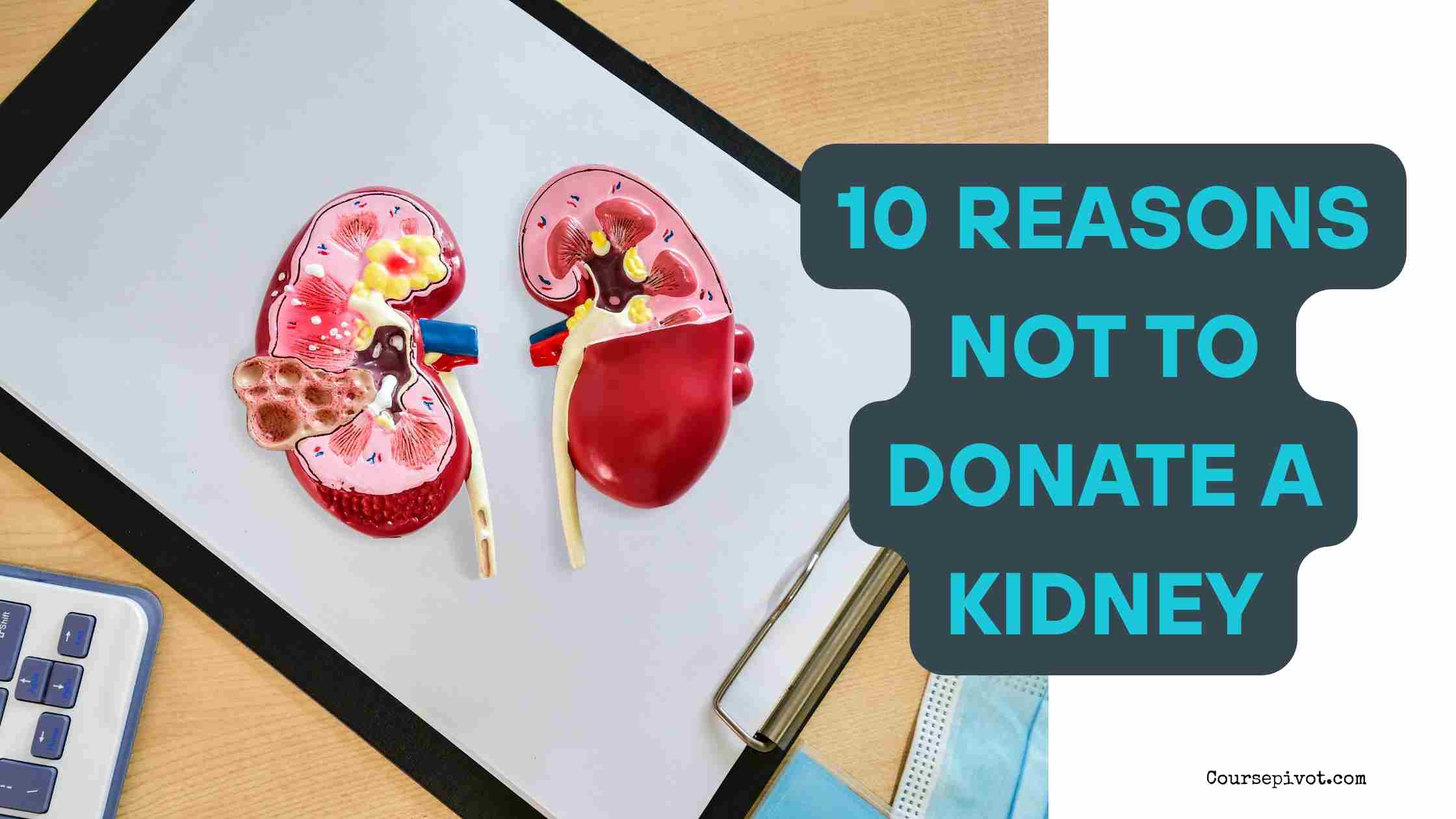
10 Reasons Not to Donate a Kidney
What You Need to Think About Before Making This Life-Altering Decision
When I first thought about donating a kidney, I was fueled by emotion. The idea of saving someone’s life felt noble, selfless, even heroic. But then I asked myself the question few people dare to ask:
What could go wrong?
We hear so much about the benefits of kidney donation — how you’re giving someone a second chance at life. But we don’t hear enough about what the donor goes through. We don’t hear about the downsides.
The emotional toll. The long-term risks. The permanent sacrifice.
Table of Contents
If you’re considering it, or being pressured into it, this article isn’t meant to scare you — it’s meant to inform you. You deserve to know both sides.
Here are 10 honest, real, and sometimes overlooked reasons not to donate a kidney.
🩺 1. You’re risking your own health — permanently
Let’s get something straight:
Kidney donation is major surgery.
And when that kidney is gone, it’s gone forever.
Yes, people can live with one kidney — but that doesn’t mean there are no risks. Your remaining kidney has to work double duty. And over time, especially with aging or illness, this can lead to kidney strain or even chronic kidney disease.
This is not like donating blood. It’s irreversible.
💊 2. You may face long-term medical complications
People assume once you heal, you’re fine. But some donors experience:
- High blood pressure
- Reduced kidney function
- Chronic fatigue
- Surgical complications (like hernias or infections)
You’re essentially volunteering for a lifetime of medical uncertainty, and that’s no small thing.
🧬 3. You don’t know what your future holds
At the time of donation, you may feel healthy. Young. Invincible.
But what if you develop a medical condition later in life that affects your kidneys?
Having only one kidney puts you at a disadvantage if you ever need a transplant yourself. Some donors later regret the decision when their own health starts to decline.
💼 4. Recovery can be harder than expected
Don’t let anyone tell you it’s an “easy recovery.”
It’s still major abdominal surgery — with all the pain, anesthesia risks, and recovery time that involves.
Many donors need 4 to 8 weeks off work, depending on the job. If you’re the breadwinner or don’t have paid medical leave, this could put your financial stability at risk.
🧠 5. The emotional burden can be heavier than you think
Nobody talks about this enough.
Some donors end up feeling:
- Resentment if the recipient doesn’t change their lifestyle
- Guilt if the transplant fails
- Emotional exhaustion during recovery
And if the recipient is a loved one, the emotional entanglement can get even messier.
💵 6. There’s no financial reward — and hidden costs
It’s illegal to sell your kidney in most countries. But even if you wanted to, the law doesn’t allow compensation.
You also might face:
- Travel costs
- Hotel stays
- Lost wages
- Insurance disputes
Some nonprofits help cover expenses, but you could still end up out of pocket.
🧾 7. Your health insurance might get complicated
Believe it or not, some donors report issues with future insurance coverage.
While legally your donation shouldn’t affect your premiums, some insurers:
- Require extra documentation
- Deny certain claims
- Flag you as higher risk
This can happen especially in the U.S., where health insurance is often tied to employer coverage.
🧍♂️ 8. You may not be emotionally ready for the outcome
What if the transplant doesn’t work?
What if the person you donated to doesn’t survive?
What if they reject your kidney — literally or emotionally?
It’s easy to imagine the best-case scenario. But donors aren’t always emotionally prepared for disappointment. And sadly, that happens more than you’d think.
🚫 9. You may feel pressured — not empowered
One of the worst reasons to donate a kidney?
Because someone guilted you into it.
Family pressure. Social expectations. Religious beliefs. Romantic guilt.
The decision to give away a body part should come from deep internal conviction, not emotional manipulation.
If you feel even slightly unsure, listen to that voice. You have a right to say no — and still be a good person.
🤕 10. It’s not your job to save someone else’s life
That may sound harsh. But here’s the truth:
Just because you can donate a kidney doesn’t mean you should.
You are not obligated to sacrifice your health, body, or peace of mind for someone else — even someone you love.
Your life matters too. Your body is yours.
And saying no doesn’t make you selfish. It makes you human.
Saying “No” to Kidney Donation is OK
You don’t have to feel guilty for protecting your own health.
You don’t have to explain yourself to people who think you “should.”
Donating a kidney is a deeply personal decision — and it’s permanent. This isn’t like giving away money or time. It’s a piece of you.
If you choose not to donate, you’re not lacking compassion.
You’re showing self-respect. And there’s nothing wrong with that.
If you needed permission to not donate your kidney — this is it.
You’re allowed to think long and hard before risking your well-being.
Because in the end?
You only get one body. One life. One set of kidneys.
Make your choice wisely — and make sure it’s truly yours.
Cite this article
You can copy and paste your preferred citation format below.
Martin, L. & Arquette, E.. (2025, May 20). 10 Reasons Not to Donate a Kidney. Coursepivot.com. https://coursepivot.com/blog/10-reasons-not-to-donate-a-kidney/



